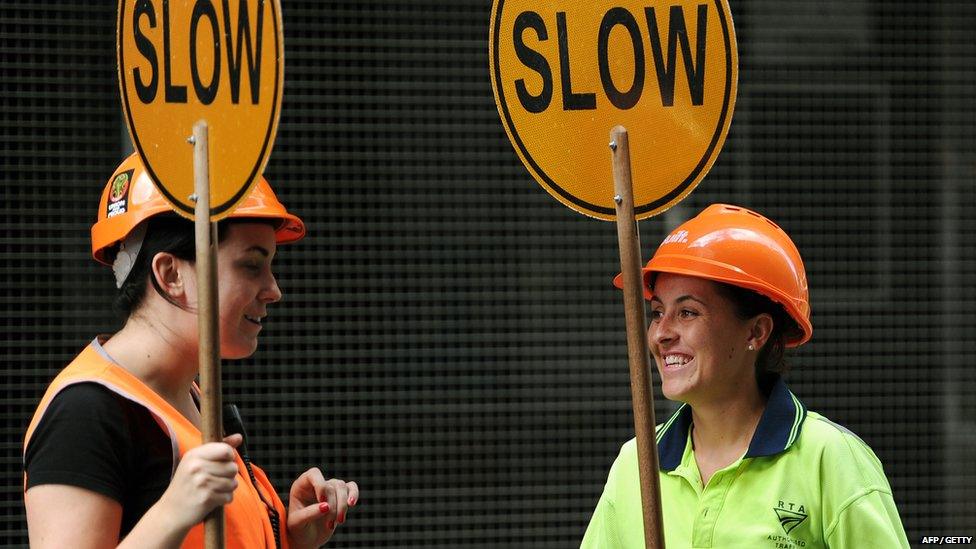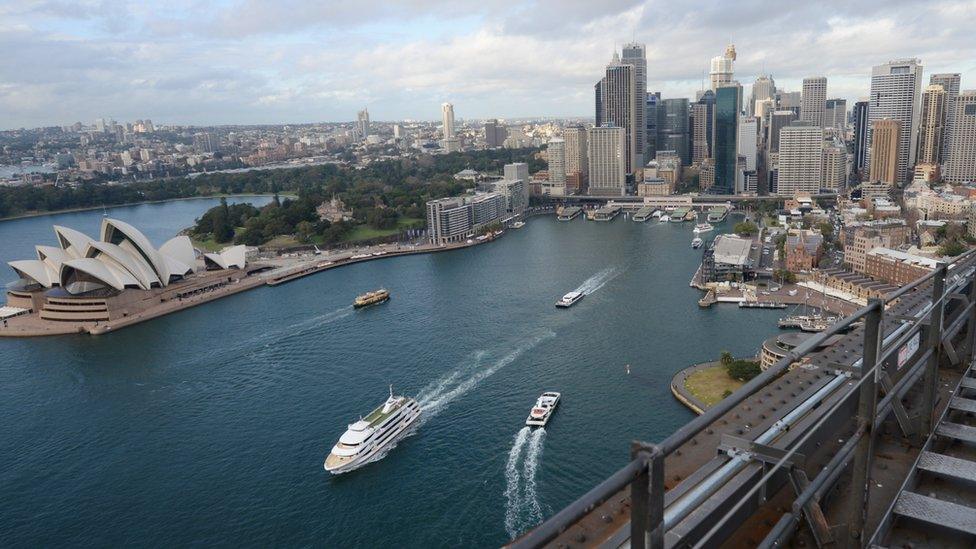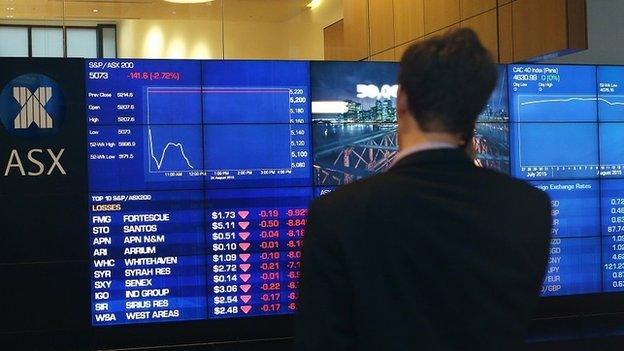Australia wage growth slowest in 20 years
- Published

Australia hasn't had a recession since the early 1990s but wage growth has remained stagnant
Australian wages grew at their slowest pace on record in 2015, fuelling speculation the country's central bank may introduce more easing measures.
Hourly rates of pay excluding bonuses rose by 0.5% in the last three months of 2015 compared to 0.6% in the prior quarter, according to the Australian Bureau of Statistics.
Annual wage growth was 2.2%, the lowest rate since the survey began in 1997.
Analysts said the soft wages growth was a "mixed blessing".
"On the one hand it's a drag for household income growth and hence consumer spending," said Shane Oliver, head of investment strategy and chief economist at AMP Capital in Sydney.
"But on the other it's helping limit the upwards pressure on unemployment and helping to further improve the competitiveness of the Australian economy. It also means that there is no inflationary pressure coming from wages."
Cooling down

Australia's economy is feeling the effects of the end of the mining boom
Australia's economy has seen growth moderate in recent years after its decade-long boom in the mining sector came to an end.
The country's resource companies are in the midst of scaling back operations and cutting production costs to cope with slumping commodity prices.
Earlier this month, data showed the unemployment rate rose to 6%, the highest level since September 2015.
"Business investment is likely to remain negative as the unwind of the mining investment boom continues to weigh," Mr Oliver said.
To counter the slowdown, the Reserve Bank of Australia has cut interest rates to record lows, which has helped boost the housing construction sector.
- Published22 February 2016
- Published4 September 2015
